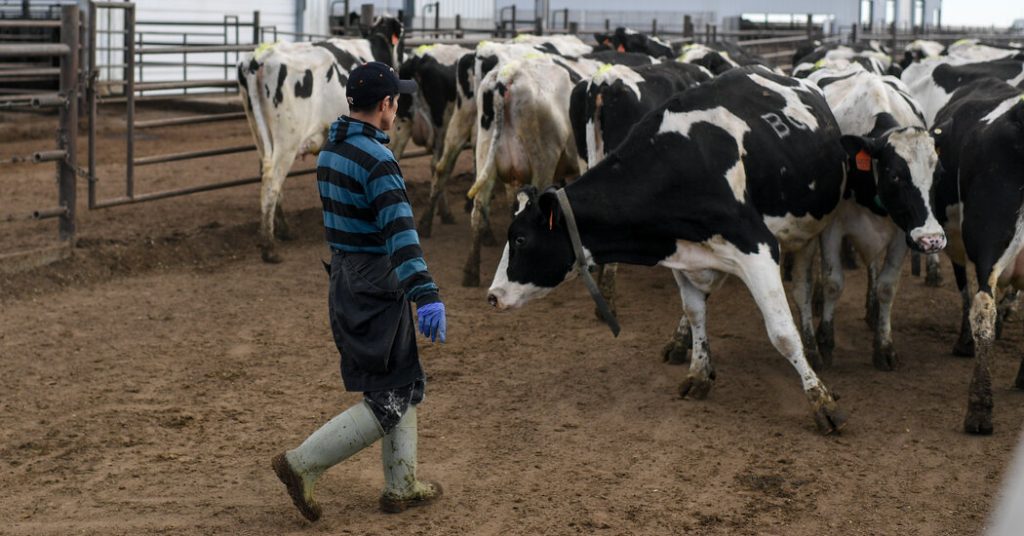H5N1, a bird flu virus, has been spreading among dairy cows for months and is now circulating widely in the commercial milk supply chain in the United States. The potential for H5N1 to spill over into humans, especially dairy workers, is a major concern. Testing of this vulnerable population has been inadequate, and efforts to monitor and test dairy workers must be improved to prevent a significant outbreak in humans. Communication and economic factors, such as language barriers, low wages, and lack of benefits, also pose challenges to ensuring timely testing and treatment for these workers.
Many dairy farmworkers in the U.S. are from Mexico and Central American countries, with some lacking legal authorization to work. Fear of public health reporting systems and immigration enforcement may dissuade undocumented workers from seeking out testing and treatment for illnesses like H5N1. Language barriers and limited literacy among dairy workers further complicate communication and education efforts related to bird flu. The industry’s low wages, lack of benefits, and poor enforcement of health and safety standards also put workers at risk and may prevent them from seeking necessary medical care.
Efforts to protect dairy workers from infectious diseases like H5N1 must focus on improving workplace safety and providing necessary protective gear. Workers with livestock can serve as an early warning system for emerging diseases, as they are often the first to notice abnormalities in animals. Increased support for local surveillance programs, as well as reducing economic barriers for dairy owners who want to provide better health care access for employees, are essential steps to prevent future outbreaks. It is crucial to empower the agricultural industry to protect workers and prevent zoonotic disease threats.
Testing and monitoring dairy workers for H5N1 is vital not only to prevent a potential human outbreak but also to protect the broader population from biological dangers. The agricultural industry plays a significant role in combating zoonotic diseases, and efforts must be made to ensure the safety and well-being of workers. Providing widespread testing for H5N1 to the dairy workforce is just the first step in addressing the potential threat posed by this virus. Erin M. Sorrell, Monica Schoch-Spana, and Meghan F. Davis, experts in public health and agriculture, emphasize the importance of proactive measures to protect dairy workers and prevent the spread of infectious diseases like H5N1.








